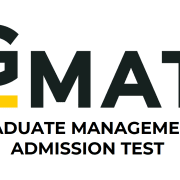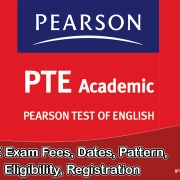Academic Recommendation Letter: How to Write & Examples 2023
An academic recommendation letter, also known as a reference letter, is written by a teacher, professor, or academic advisor that provides a written assessment of a student’s academic ability, character, and potential for success in future academic pursuits. These letters are typically requested by students applying to graduate programs, scholarships, internships, or jobs in academic settings.
An academic recommendation letter provides additional information about the student’s academic achievements, skills, and personal qualities beyond what is included in their application materials. This letter can be an important factor in the admission or selection process, as it provides a perspective on the student’s academic potential and suitability for the program or opportunity.
An academic recommendation letter typically includes information such as the length of time the recommender has known the student, the student’s academic performance, specific projects or research the student has completed, and the recommender’s overall assessment of the student’s character, work ethic, and potential for success in the chosen field. The letter must be written by a credible and qualified individual with experience working with the student in an academic context.
What are Academic recommendation letters, and why do they matter?
Academic recommendation letters are important because they provide valuable information about a student’s academic potential, character, and suitability for academic programs or opportunities beyond what can be discerned from the student’s application materials. They can help admissions committees, scholarship committees, employers, and others make informed decisions about admitting, funding, or hiring a student.
Recommendation letters can also provide insights into the student’s strengths and potential areas for growth and demonstrate the student’s commitment to academic pursuits and their ability to work collaboratively with others. For example, a letter highlighting a student’s strong analytical skills and ability to work in a team can be particularly compelling for graduate school programs in engineering or business.
Who should write Academic recommendation letters?
The person writing your academic recommendation letter should know your work, character, and accomplishments. A better letter will be written by someone familiar with you well enough to highlight your intellectual and personal attributes than someone unfamiliar with you. Depending on your academic and professional background, you can ask different referees for one of three main types of letters.
No matter what kind of letter you request, the referee must be someone you know. You should not hire writers you have not personally worked with or only met briefly. These people won’t have time to evaluate you and your abilities, so their letters will probably sound very generic. Remember that the recommendation letter should reveal details about you that are not contained anywhere else in your application to the admissions committee.
We strongly advise you to obtain references from academic, professional, and personal sources. The admissions committee should comprehensively understand who you are as a candidate and what you can bring to their school from your letters. Additionally, you ought to determine what would be most appealing to the school you are applying to. For instance, the Massachusetts Institute of Technology (MIT) has said that they think letters of recommendation from guidance counselors and high school teachers are the most valuable because they can give a more thorough picture of the student and their accomplishments. Therefore, you might want a recommendation from your high school teacher if you consider applying to MIT.
How to write academic recommendation letters?
To learn how to write an academic recommendation letter, follow these guidelines:
1. Include their address and salutation
Including an address is critical to ensure the recommendation letter reaches its intended recipient. Obtain information about the intended institution or organization from the candidate. You could, for instance, address letters of recommendation for employment to the hiring manager and those for college admissions to the admissions officer. You can use “Dear Sir/Madam” or “To Whom It May Concern” if you’re unsure who will receive the letter. Use the recipient’s full name in the salutation when you are certain of it.
2. Write your introductory paragraph
The introduction paragraph aims to introduce yourself, explain your motivation for writing, and identify the person or organization on whose behalf you are writing. The opening paragraph should mention your precise job title and the nature of your relationship with the student. This is also a great opportunity to highlight the candidate’s positive qualities, such as diligence or academic prowess, and explain your recommendations’ rationale. A strong introduction is succinct but memorable.
3. Discuss the student’s qualifications
The relevant credentials of the student are described in the next section of an academic recommendation letter. Again, do your homework on the college or organization the applicant is applying to and list any pertinent credentials. Additionally, you can speak with the student and find out which credentials they want you to highlight in your letter of recommendation. You can take into account the following things when talking about the student’s qualifications:
- Academic qualifications: This usually refers to the student’s academic accomplishments, specialties, or pertinent knowledge and is the most pertinent. The student’s GPA or pertinent coursework are a couple of examples.
- Values and personality: This speaks to the student’s behavioral characteristics. You can discuss the student’s interpersonal relationships, values, and soft skills.
- Awards: Awards are a fantastic way to highlight exceptional performance. These honors may be given for scholastic, extracurricular, or individual accomplishments.
- Extracurricular activities: The recipient will see that the student is a well-rounded applicant if you include evidence of their extracurricular activities in your academic recommendation letter. Sports, volunteer work, and leadership positions are all examples of extracurricular activities.
- Demonstration of improvement: While praising the students is wonderful, portray them as teachable individuals. You can show growth by bringing up a difficulty the student overcame.
4. Describe specific events
Your letter of recommendation will sound more credible if you reference particular incidents. Additionally, it provides a real-world illustration of the applicant’s abilities for the hiring manager or admissions officer. For instance, the STAR method can be used to explain the assignment you gave the student and how they completed it and got the desired results.
5. Conclude the letter
When concluding an academic recommendation letter, it is helpful to reiterate the specific position you recommend the student for. Tell the recipient you are available to provide more information, and include your contact information. Include your full name and job title in the formal closing statement before concluding the letter.

Example academic recommendation letter for a university student
Here is an example of a good recommendation letter for a university student:
Dear Sir/Madam,
As his business administration professor, I’ve enjoyed supervising and working with the highly talented David Ferguson. I am Professor Shelby Williams, an associate professor of business administration at Wembley College and David’s project supervisor. Without a doubt in my mind, I can say David has all the necessary skills, values, and qualifications you need in your organization.
I met David when he was newly gained admitted into Wembley College. He was a student in one of my business classes, and his intelligence and work ethic immediately made him noticeable. David turned in all class projects before the deadline and participated fully in all class discussions and joint tasks. As a team player, David made it his responsibility to monitor the progress of his colleagues and explain difficult coursework to as many as he would listen. I fully expected it when they appointed him the class representative.
Due to his new role as the class representative, my relationship with David grew more respectful and mutually beneficial. I observed David in several extracurricular roles, including when he served as the treasurer of the campus student body. In this role, David demonstrated impeccable transparency and accountability with the organization’s funds. He released frequent updates on the state of the organization’s finances. I was glad to learn that he eventually grew the organization’s treasury by 300%, a typical result for a young man as diligent and honest as David.
David is a high-performing student currently at the top of his class, with a 3.98 out of 4.0 GPA. I can confidently say he’s one of the most intelligent students I’ve enjoyed working with as a professor. Beyond his academic talents, David embodies essential professional values like integrity, dedication, and diligence. I’ve observed that he also has impeccable leadership and interpersonal skills.
I encourage you to consider David as a new addition to your organization. I am confident that he is a valuable asset. I am available to provide any additional clarifications on David’s qualifications and our working relationship. You can reach me via mail at shelbywilliams@email.com. Thank you for your time, and I look forward to hearing from you.
Example academic recommendation letter for a university student
Here is an example of how to write an academic recommendation letter for a high school student:
Dear Admissions Officer,
My name is Grant Davidson, and I am an economics teacher at Bull Lake High School. This letter recommends Amy Richards for a position to study economics at the prestigious Taylor University. Amy is a well-behaved, curious, and brilliant young lady who I’m certain can make an invaluable addition to your institution.
As a high school teacher, I have the privilege of observing children’s developmental stages. I believe children form many of their foundational habits at this stage, which they carry into life. Having observed Amy in an academic setting, I’m thoroughly convinced of her intelligence and work ethic. Amy has a natural aptitude for economics, mathematics, and algebra. These subjects come so naturally to her that she often assists me with tutoring some of her classmates who find it challenging. Due to her incredible diligence, Amy takes extra time to focus on difficult subjects.
Amy is also a vibrant young lady with a passion for soccer. She led the school to two municipal soccer championships as the team captain. Due to her teammates’ love and admiration for her, Amy can lead any team effortlessly and inspire her colleagues to do more. I have seen this in both academic and extracurricular scenarios. For such a young lady, her interpersonal and communication skills are excellent.
I went through your university website and noticed that Taylor University prioritizes applicants with well-rounded lifestyles. I smiled while reading that because it describes the exact kind of candidate Amy is. She can bring diverse skills and talents to your institution, and I can also guarantee she has impeccable values and a strong sense of principles. I am confident Amy can thrive in your institution and make you proud, as she has done for us at Bull Lake High School.
Thank you for taking the time to read my recommendation. I am available to supply additional details on Amy’s qualifications and our working relationship. You can reach me via my cell number, 323-443-5644, or by email at grantdavidson@email.com.
Yours sincerely,
Grant Davidson
Economics teacher
Bull Lake High School
Frequently Asked Questions: Academic Recommendation Letter
We would prefer to see at least one recommendation letter from a professor, lecturer, or teaching assistant who has had substantial contact with your academic work. Pick out your recommenders with care. Ask recommenders who will complement you as a student and are familiar with your work and skill set enough to write a thorough, insightful letter.
Asking a politician, celebrity, judge, or alumnus based solely on their name and position is improper. A letter from a lawyer is not required. Selecting a recommender based solely on that criteria rarely yields a useful recommendation. The content of a recommendation, not the author’s position or title, matters most. Additionally, we advise against submitting recommendations from family or friends.
Your recommendations should outline your educational background, mental prowess, and professional or academic strengths. This includes details about your intellectual curiosity, writing prowess, capacity for research and analysis, drive, and work ethic, as well as your ability to think critically and push yourself. Personal qualities like maturity, professionalism, the potential for leadership, and the capacity to collaborate with others are also pertinent.
The most useful letters cover the abovementioned characteristics and include a detailed and in-depth discussion of your academic skills. The Admissions Committee frequently finds it very beneficial to talk about specific examples of your work, possibly a research project or significant piece of writing. Additionally helpful are qualitative comparisons with your peers and illustrative anecdotes.
You are welcome to request a recommendation from your employer, especially if you haven’t attended school. Please ask your recommender to focus as much as possible on your academic credentials. It is unnecessary to add a letter from your employer or internship unless it adds something extra to your file if you are still an undergraduate and have strong letters from your professors.
The admissions committee will accept up to four recommendations but only requires two. Depending on the letters’ contents, you may submit more than two. They can significantly strengthen your application if your additional recommendations add new insight to your file. More than two letters alone won’t help your application get noticed. Simply submitting two letters is acceptable if submitting more would be pointless.
It is best to ask someone who knows you well in an academic context, such as a teacher, professor, or academic advisor. Ideally, this person should have taught you in a subject area relevant to your intended field of study or work and can speak to your academic performance and potential.








Leave a Reply
Want to join the discussion?Feel free to contribute!